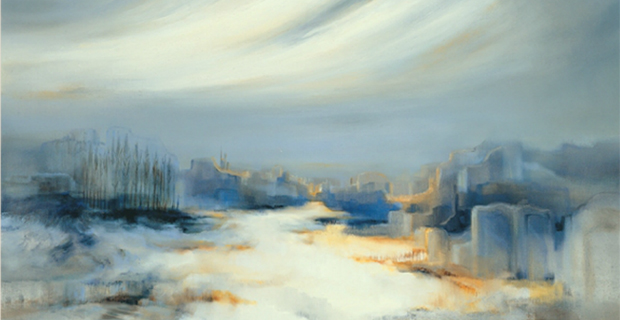
In the early snowfall of September in Calgary-my adopted home, and the short and windy autumn that ironically followed the snow, I imagined this moment. This day in November, that I knew I would be out of the country, sitting in a San Francisco cafe and write down my thoughts on Parsagon. When I was in Tehran, autumn was my favorite season. In Calgary it is short and heralds a long and cold winter, so I savor every hour like I would every drop of a good coffee.
When temperature fell below zero, I imagined the future in present, the time when I would get a second chance at autumn in another country. And now I am present in the future I had imagined in the past, and I wonder about time and what it means in our lives.
What is “time”? Are we right in measuring it the way that we do-by its relation to present? To our present? Aren’t our experiences of life highly influenced by our understanding(s) of time? Can we feel differently about our lives if our conception of time was dramatically different?
Perhaps time is regressive. We grow old, we move to places far from family and friends. We lose loved ones to change or to death. With much hope we look to the future, only to see that future often brings loss and pain. In fact, in those times of hardship that we wish to pass soon, we are at the same time wishing the passing of our time on earth. Most of us have stories to tell about “the good old times;” these stories accumulate as we grow older.
Perhaps time is redemptive. Don’t many of us long for a better time to come? When our personal problems are solved, when the world is peaceful, and stories of wars and epidemics are no longer on the headlines. After all, isn’t hope-our motive force in life, the child of redemptive time?
Time is repetitive. Seasons pass. Routines become tedious and wear down one’s creativity. Yet we need repetition; a new day is a new chance. A new year is a new beginning.
Time can also be understood as rupture, the infinite possibilities of the future are ahead of us. Time will bring new opportunities that our focused mind, trapped in the limitation of “the now,” can yet not see. It will bring new challenges as well.
People understand time differently in different cultures. It is a beautifully ambiguous concept. For me, as a parsagoner, time is not one of these. It is all of these together. It is measured by my experiences with the people I have had the privilege to know since my academic journey started in 2002. I reflect with nostalgia on my time as an undergraduate student in Tehran, collaborating with some of my fellow parsagoners in student journals and poetry clubs. The passage of time has only improved our relationships, introduced us to more possibilities, and made us more creative in our collaborations. The Parsagon Review is an outcome of these, and an outcome I am proud of. And sure, we have all been bored at one point or another with routines and with issues that may arise in any collaboration, but working together has become only better and more interesting through time. Every new project is more exciting. Every month is a new Parsagon! I am only looking forward to what time will bring.
* This editorial is inspired by Felski, Rita. “Telling Time in Feminist Theory.” Tulsa Studies in Women’s Literature 21.1 (2002): 21-28. JSTOR. Web. Artwork: “Present”, by Iran Darroudi


Leave a Reply